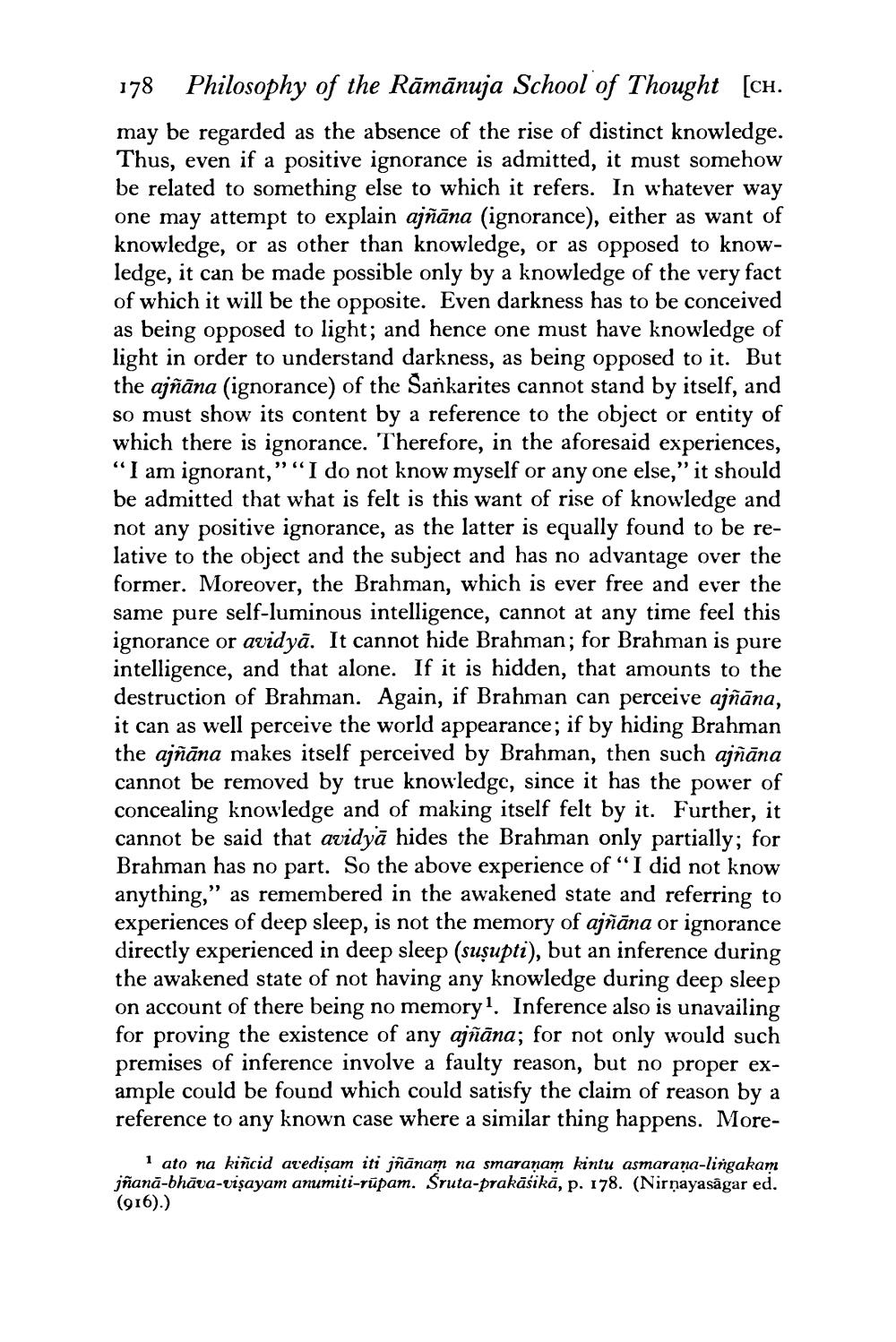________________
178 Philosophy of the Rāmānuja School of Thought [CH. may be regarded as the absence of the rise of distinct knowledge. Thus, even if a positive ignorance is admitted, it must somehow be related to something else to which it refers. In whatever way one may attempt to explain ajñāna (ignorance), either as want of knowledge, or as other than knowledge, or as opposed to knowledge, it can be made possible only by a knowledge of the very fact of which it will be the opposite. Even darkness has to be conceived as being opposed to light; and hence one must have knowledge of light in order to understand darkness, as being opposed to it. But the ajñāna (ignorance) of the Sankarites cannot stand by itself, and so must show its content by a reference to the object or entity of which there is ignorance. Therefore, in the aforesaid experiences, “I am ignorant," "I do not know myself or any one else,” it should be admitted that what is felt is this want of rise of knowledge and not any positive ignorance, as the latter is equally found to be relative to the object and the subject and has no advantage over the former. Moreover, the Brahman, which is ever free and ever the same pure self-luminous intelligence, cannot at any time feel this ignorance or avidyā. It cannot hide Brahman; for Brahman is pure intelligence, and that alone. If it is hidden, that amounts to the destruction of Brahman. Again, if Brahman can perceive ajñāna, it can as well perceive the world appearance; if by hiding Brahman the ajñāna makes itself perceived by Brahman, then such ajñāna cannot be removed by true knowledge, since it has the power of concealing knowledge and of making itself felt by it. Further, it cannot be said that avidyā hides the Brahman only partially; for Brahman has no part. So the above experience of “I did not know anything," as remembered in the awakened state and referring to experiences of deep sleep, is not the memory of ajñāna or ignorance directly experienced in deep sleep (sușupti), but an inference during the awakened state of not having any knowledge during deep sleep on account of there being no memory! Inference also is unavailing for proving the existence of any ajñāna; for not only would such premises of inference involve a faulty reason, but no proper example could be found which could satisfy the claim of reason by a reference to any known case where a similar thing happens. More
1 ato na kiñcid avedişam iti jñānam na smaranam kintu asmarana-lingakam jñanā-bhāva-visayam anumiti-rūpam. Sruta-prakāśikā, p. 178. (Nirnayasagar ed. (916).)




